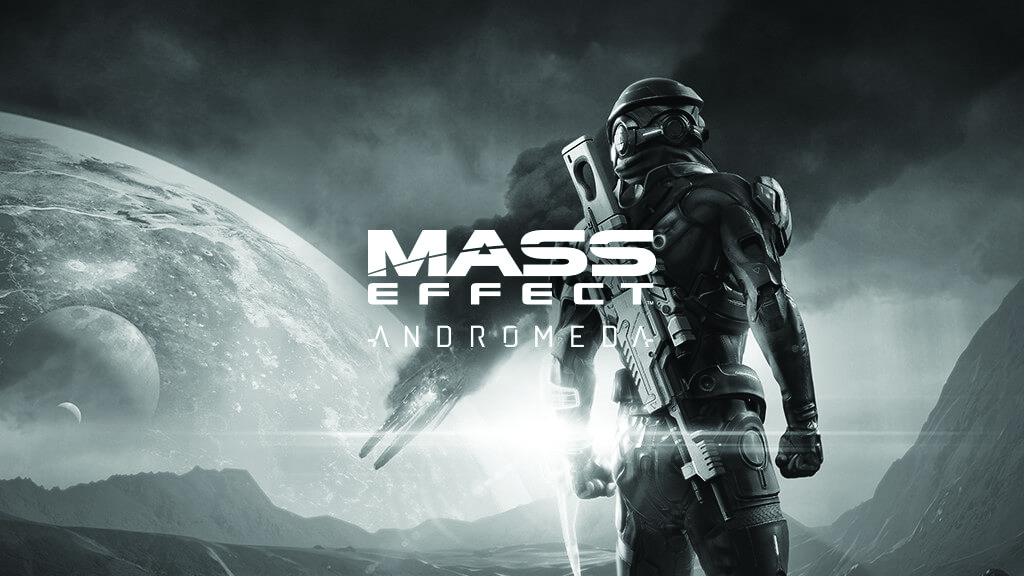By, Matthew Bergeron
Bioware’s Mass Effect, released in 2007, started the story of Commander Shepard’s journey across the Milky Way galaxy while working to save it. Now, ten years later, in Mass Effect: Andromeda, we have a new protagonist, a new story to tell, and a new galaxy to explore.
The Mass Effect trilogy was a science fiction epic, building towards Mass Effect 3’s galactic war against the sentient machine-starships known as Reapers. Mass Effect: Andromeda is related to, but separated from, the original trilogy.
Before the events of the Reaper war, the Andromeda Initiative is formed, working to send a hundred thousand colonists to the Andromeda galaxy. Andromeda opens with the human “Ark” arriving in the Helius Cluster of Andromeda after 600 years in cryogenic stasis. Of course everything goes wrong, none of the other Arks are accounted for, and the “Nexus,” the space station meant to be the seat of the new government, is in chaos.
The player fills the shoes of one of the two Ryder twins, depending on if they want to play a male or female character. The twins are the children of the “Pathfinder,” a hybrid of an explorer and a scout meant to search out new worlds for colonization. Through a series of events, Ryder ends up the becoming the Pathfinder. It is then up to the player to travel Andromeda, cultivating planets for colonization, searching out the missing Arks, and solving the mystery of why everything went wrong.
Most of the aspects of the game are solid, but not on the levels previously established by the Mass Effect trilogy, primarily the plot, writing, and characters. Exploring alien planets is an upgraded version of the same system from Mass Effect 1, and is fun enough as you explore, but as you fill in the edges of the map you realize you only have a handful of planets to chart, which is especially evident as side quests keep bouncing you between the same few locations.
The plot, writing, and voice acting are okay—enough to keep you engaged, but not on same level as the gripping tales told across the original trilogy. The same is true with the characters, specifically companions. They each have their moments, but I did not find myself attached to them on quite the same level as the original cast. That’s probably nostalgia talking.
Out-of-combat models and graphics are mediocre at best, and there are a few bugs here and there that are definitely annoying, but I did not find the experience as off-putting as others have said.
The strongest point of Andromeda
is definitely the combat. Each game of the Mass Effect trilogy improved on the combat, and Andromeda is no different. By the time Mass Effect 3 rolled around, combat consisted of the use of powers (such as overloading an opponent’s protective shields with an electric pulse) in conjunction with various science fiction weaponry; the bigger guns you use, the less often you can use powers. Andromeda expands on the number and availability of powers, along with the diversity of weapons, both old favorites and new additions. Mechanically, the biggest addition to combat is a drastic mobility boost; Ryder is equipped with a “jump-jet,” a short range jetpack that opens up so many avenues for vertical movement and combat.
Previously, players picked from one of six classes and were locked into their choice. Those classes determined what powers the player has available. This system has been scrapped in favor of “profiles.” The play now invests points into powers directly, and based on how much and where you invest your powers in the skill-tree, different profiles to suit your preferences are unlocked. For example, if you invest in the Combat tree, you unlock the Soldier profile, which boosts weapon-based abilities, but then if you decide to change things up and start putting points in the Tech tree, you’ll then unlock the Engineer (Tech) and Infiltrator (hybrid Combat and Tech) profiles, which in turn provide different bonuses.
The player can switch between profiles and sets of powers on the fly and even in combat. This system, combined with the increased mobility, allows for an insane amount of flexibility and creativity in how you build your character.
Overall, Andromeda is an expansion upon the Mass Effect universe that doesn’t quite live up to the extremely high expectations, but still comes pretty close. It shares many of its qualities, both boons and blunders, with Mass Effect 1, which, while beloved, is 10 years old and has started to show its age. If you want an action-fueled sci-fi romp across an alien galaxy, then this game is for you. If you always found combat a bore and played for the characters, then be warned that it is not quite up to the standards set by Shepard and their lovable crew.



